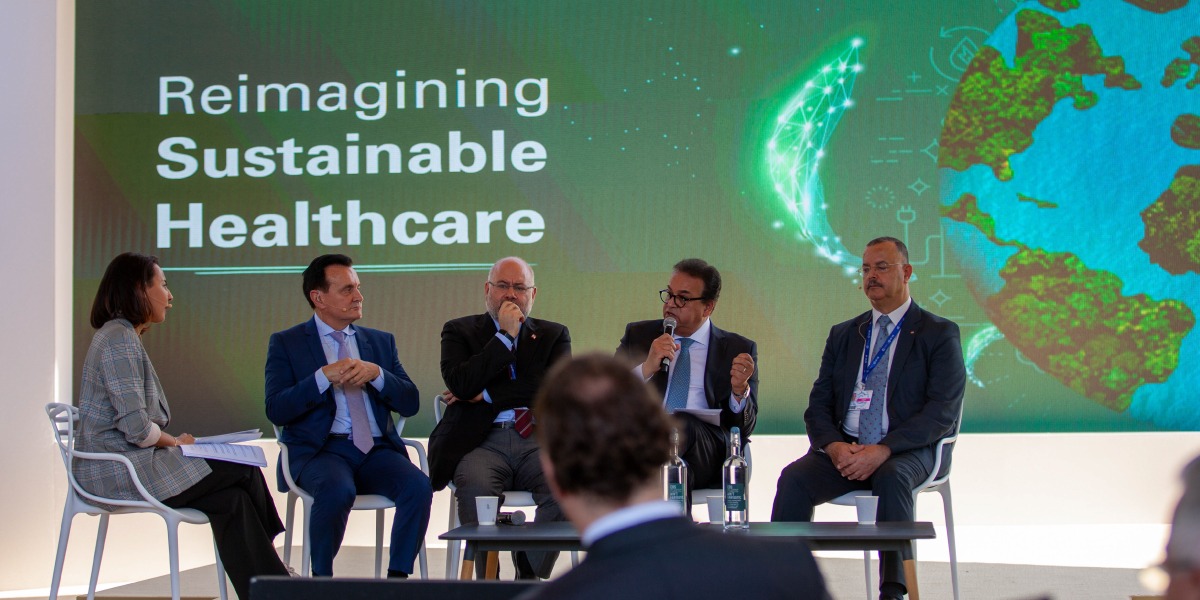The 28th Conference of the Parties (COP28) to the UN Framework Convention on Climate Change (UNFCCC) stands as a monumental gathering in the quest for global climate solutions. Held in Dubai, this significant event brought together nations from around the globe to negotiate and collaborate on measures to combat climate change, showcasing the urgent need for collective action.
The complexity of achieving consensus among over 200 countries within a two-week period highlights the significant challenges and diplomatic endeavors involved in these discussions. COP28’s outcomes reflect a blend of negotiated agreements and non-negotiated initiatives, each contributing to the broader goal of addressing the climate crisis.
What is COP28?
COP28 serves as a critical juncture in international climate policy, where countries under the UNFCCC convene to assess progress, set new targets, and initiate cooperative strategies against climate change. The conference plays a pivotal role in global efforts to limit global warming to 1.5 degrees, encouraging nations to undertake ambitious actions to reduce greenhouse gas emissions, enhance resilience, and support sustainable development.
The event was marked by significant pledges, innovative solutions, and enhanced commitments toward reducing carbon footprints. A key focus was on increasing renewable energy adoption, phasing out fossil fuels, and addressing the financing needs of developing nations to support their transition to greener economies. Below are some of the key announcements that made COP28 a successful COP.
𝗘𝗻𝗲𝗿𝗴𝘆 𝗧𝗿𝗮𝗻𝘀𝗶𝘁𝗶𝗼𝗻 𝗔𝗰𝗰𝗲𝗹𝗲𝗿𝗮𝘁𝗶𝗼𝗻
The Global Renewables and Energy Efficiency Pledge, endorsed by 130 national governments, commits to tripling the world’s renewable energy capacity to at least 11,000 GW by 2030 and doubling the global average annual rate of energy efficiency improvements. Additionally, the newly-launched Declaration to Triple Nuclear Energy, raising a goal of tripling nuclear energy capacity globally by 2050, was endorsed by 22 national governments.
Loss and Damage Fund
During the first day of COP28, a historic agreement was reached to establish a ‘loss and damage’ fund, receiving a standing ovation. The UAE and Germany pledged $100 million each to this startup fund, addressing the escalating costs of extreme weather events and slow-onset disasters. This initial funding, totaling close to $429 million, includes contributions from the EU, the UK, the US, and Japan. The fund, under the World Bank initially, aims to compensate developing nations for climate impacts. While welcomed, advocates stress the need for long-term sustainability and equitable access to funds for vulnerable communities.
Beginning of the end of the fossil fuel era
The COP28 conference concluded with an agreement signaling the start of the end of the fossil fuel era, focusing on a swift, just, and equitable transition with deep emissions cuts and increased finance. The global stocktake, a central outcome, emphasizes the need for urgent climate action to keep the global temperature limit of 1.5°C within reach. Despite progress, the stocktake notes that parties are off track in meeting their Paris Agreement goals and calls for a tripling of renewable energy capacity, doubling energy efficiency improvements, and phasing out unabated coal power.
𝗙𝘂𝗹𝗹 𝗜𝗻𝗰𝗹𝘂𝘀𝗶𝘃𝗶𝘁𝘆, 𝘄𝗶𝘁𝗵 𝗙𝗼𝗰𝘂𝘀 𝗼𝗻 𝗚𝗲𝗻𝗱𝗲𝗿 𝗘𝗾𝘂𝗶𝘁𝘆
The COP28 Presidency and the COP28 High-Level Champion launched the COP 28 Gender-Responsive Just Transitions and Climate Action Partnership. 78 national governments signed the Partnership, committing to collaborate for just and inclusive transitions that advance gender equality.Engaging with the High-Level Champion of COP28, IUCN, the International Indigenous Forum on Biodiversity, and the IUCN Indigenous Peoples Organizations members, the Podong Indigenous Peoples Initiative was launched. This initiative ensures direct funding to Indigenous Peoples, with a commitment that no less than 85 percent of funds reach Indigenous territories and communities.
COP28 exemplifies the complexities and challenges of global climate negotiations. Achieving consensus among a diverse group of nations on such a critical issue underscores the importance of continued dialogue, cooperation, and action.
Mena Impact Involvement at COP28
Mena Impact has been at the forefront of COP28, actively engaging in key events and initiatives that advance the climate agenda. From participating in high-level forums to organizing impactful workshops, our commitment to promoting climate actions and fostering collaboration has been unwavering.
At the Business & Philanthropy Climate forum, Mena Impact had the privilege to join over 1300 global leaders, including luminaries like Bill Gates and Jesper Brodin, in charting a course towards a net-zero future.Furthermore, our founder’s role as the MC of a significant event emphasizing the interconnectedness of our climate and health crisis, organized by the UAE Ministry of Health and Prevention and WHO further exemplifies our dedication to catalyzing positive change.
In collaboration with the Zayed Foundation for the Environment, a UAE-based NGO, Mena Impact introduced the concept of Inner Development Goals (IDGs) for climate action, sparking a profound reflection on the role of inner work in achieving sustainable development. Additionally, our dinner gathering with Jan Artem Henriksson, CEO of the IDGs non-profit organization, provided a platform for delegates from around the world to exchange ideas and insights midway through the summit.
As we move forward, Mena Impact remains committed to driving impact and fostering sustainable development in the MENA region. Through collaboration, innovation, and advocacy, we will continue to play our part in shaping a more resilient and sustainable future for generations to come.




